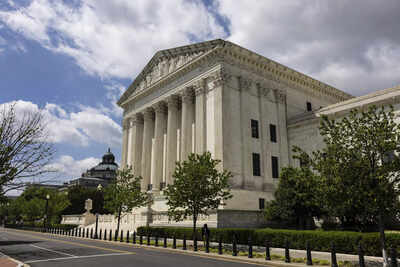
On the 105th day of what was supposed to be a 60-day legislative session, Florida lawmakers quietly passed a contentious education bill that could reshape the future of public schooling in the state.
The move allows privately operated charter schools to “co-locate” within traditional public schools, essentially letting them operate rent-free inside taxpayer-funded campuses, including some that are high-performing but under-enrolled.The bill’s passage, finalized late Monday night with few members of the public present, marks a significant escalation in Florida’s long-standing campaign to expand school choice.
As a national bellwether for conservative education reforms, Florida is once again at the forefront of a debate that pits school privatization advocates against defenders of traditional public education.
A backdoor maneuver
Initially thought dead at the close of the regular legislative session in May, the bill was revived and tucked into the broader state budget package as negotiations stretched into summer. This allowed Republican lawmakers to sidestep regular committee scrutiny and public debate, prompting outcry from Democratic lawmakers and education advocates.
“It changes everything in the state for traditional public schools,” warned Democratic Rep. Robin Bartleman. “Why are you messing with schools that are working? This is a sin” as reported by the Associated Press.Supporters, however, frame the bill as a logical use of public resources and a lifeline for students trapped in failing schools.“We’re seeing a lot of vacant and underused buildings paid for by our taxpayer dollars,” argued Republican Rep.
Jenna Persons-Mulicka. “We have operators that want to come in and give the best education to those who are in schools that haven’t been getting the greatest education... Let’s give them the opportunity,” as reported by Associated Press.
Charter schools and ‘Schools of Hope’
The legislation expands Florida’s “schools of hope” program, originally introduced in 2017 to lure high-performing charter operators into areas with persistently low-performing public schools.
Under the new rules, these schools can now open inside public school buildings, regardless of whether the host school is failing, as long as there’s space available.Perhaps more controversially, the bill also redefines what counts as an “academically struggling” school. According to a legislative analysis, this reclassification will “greatly increase the number of schools being designated as persistently low performing,” making it easier for charter operators to enter those zones.Critics argue the move is designed to dilute public education from within. “We are witnessing the hollowing out of our public school infrastructure,” said a public school advocate who asked to remain anonymous, citing political retaliation. “It’s a slow dismantling, disguised as choice,” as quoted by Associated Press.
Influence of wealth and power
Among the entities lobbying for the bill was Citadel Enterprise Americas, an investment arm of hedge fund billionaire and GOP megadonor Ken Griffin.
His financial backing of charter initiatives adds fuel to critics’ claims that Florida’s education system is increasingly shaped by private wealth and political influence.The bill also enables charter operators to bypass local school boards, a key oversight body, and instead submit applications directly to public colleges and universities, many of which are now overseen by DeSantis appointees or former Republican lawmakers.This maneuver mirrors a similar move in Tennessee, where Republican lawmakers passed a bill allowing charter hopefuls to apply directly to a state commission if local boards deny their applications too often.
A system under strain
Florida’s traditional public schools are already facing declining enrollment due to a surge in homeschooling, private school enrollment, and charter school attendance, trends accelerated by the state’s expanded school voucher program, which now includes all K-12 students regardless of income.With this latest legislation, critics fear public schools will be stretched thinner, both financially and structurally. “Public schools are being set up to fail,” said Bartleman, who emphasized that removing space and resources from functional schools undermines their ability to succeed.
What’s next?
The bill now awaits Governor Ron DeSantis’ signature, which is expected without delay. For supporters, it’s a victory in a broader ideological war over education policy.
For opponents, it’s yet another battle lost in a state where school privatization continues to gain ground, often behind closed doors.
As the dust settles, one thing is clear: Florida’s education landscape is undergoing a transformation—one that could set a precedent for similar efforts nationwide. Whether that transformation leads to greater opportunity or greater inequity remains a question that will unfold in classrooms, boardrooms, and legislative halls in the months and years ahead.

 7 hours ago
45
7 hours ago
45




























 English (US)
English (US)